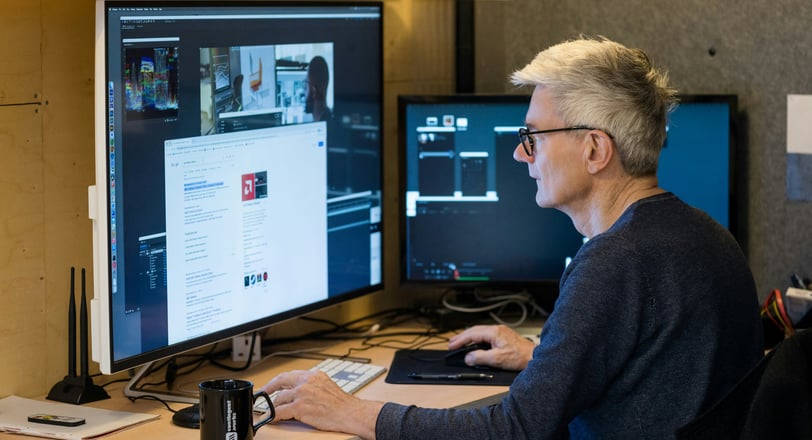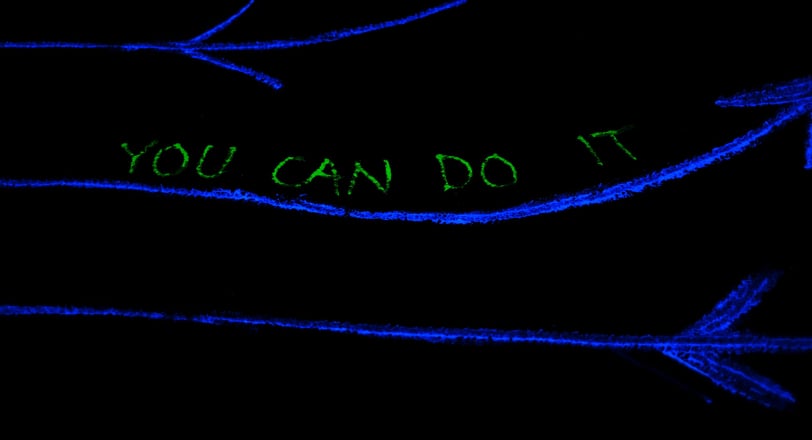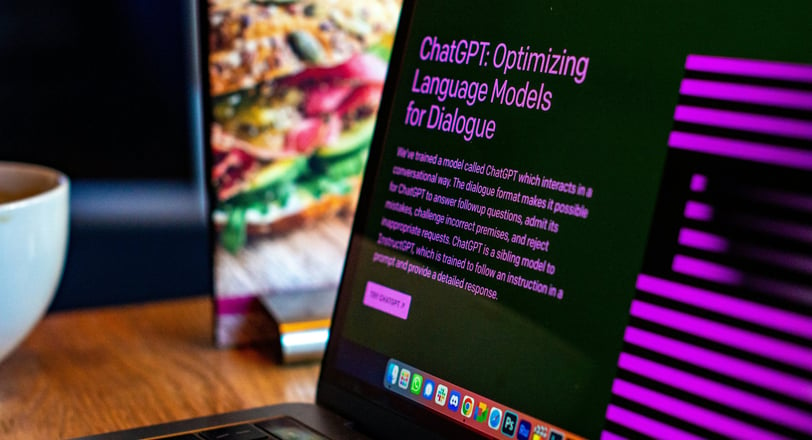Stay Tuned For Our Daily Posts!
AI Isn't Taking Your Job - It's Eliminating Your Excuses
How the AI revolution is exposing our self-imposed limitations and opening doors for those who adapt
BLOG
The Brainy Croissant
4/4/20254 min read


The Great Excuse Extinction
“I would write a book, but I’m not a good writer.”
“I’d start a side business, but I don’t know how to code.”
“I’d create videos, but I don’t have editing skills.”
For decades, these statements represented legitimate barriers. Today, they’re rapidly becoming obsolete excuses.
When ChatGPT helped an average person write and publish a children’s book in a weekend, when Midjourney enabled a non-artist to create gallery-worthy illustrations, when an AI video editor turned a rambling conversation into a polished TED-style talk — something fundamental shifted.
The shift wasn’t just technological. It was psychological.
The Real AI Disruption: Your Mental Barriers
The most disruptive aspect of AI isn’t that it might take some jobs — it’s that it’s systematically eliminating the barriers that once justified our inaction.
Three months ago, I watched a colleague with zero design experience create a professional website in an afternoon using AI tools. She had been talking about launching her consulting business for years, always with the same explanation: “I can’t afford a web designer yet.”
That excuse evaporated in hours.
This pattern is repeating across countless domains:
Content Creation: “I’m not creative enough” becomes irrelevant when AI can help generate and refine ideas
Data Analysis: “I don’t understand numbers” no longer works when AI can interpret complex datasets conversationally
Programming: “I never learned to code” matters less when AI can write functional code from natural language descriptions
Design: “I don’t have an eye for aesthetics” isn’t limiting when AI can generate professional visuals from descriptions
The Excuse Economy We Built
We’ve built personal and professional identities around what we believe we can’t do. These limitations became comfortable excuses that shielded us from the vulnerability of trying.
“I’m just not a tech person” became a badge some wore proudly, rather than a self-imposed limitation.
“I’m more of a big-picture person” became code for “I don’t want to learn the details.”
These narratives served us psychologically — they protected our egos and gave us permission to stay in our comfort zones.
But AI tools don’t respect these boundaries. They don’t care about the stories you’ve told yourself about your capabilities and limitations.
The Uncomfortable Revelation
Here’s the uncomfortable truth that’s emerging: Many of our “I can’t” statements were actually “I won’t” statements in disguise.
When the freelance photographer says, “I can’t handle the business side of things,” what happens when AI makes bookkeeping and client management trivially easy?
When the marketing manager says, “I’m not technical enough to analyze this data,” what happens when an AI assistant can walk them through advanced analytics in plain English?
The revelation isn’t that AI can do these things — it’s that we now have to confront our real reasons for inaction.
The New Dividing Line


As AI tools continue advancing at breathtaking speed, a new dividing line is forming. It’s not between those who know how to code and those who don’t, or between creative and analytical minds.
The new divide is between:
Those who use AI to transcend their self-imposed limitations
Those who cling to outdated excuses despite new possibilities
When someone says “I can’t create professional videos” in 2025, what they’re really saying is “I haven’t spent an afternoon learning how to use AI video tools.”
The Opportunity Hidden in Plain Sight
This excuse extinction represents a massive opportunity — especially for those who’ve felt locked out of certain domains due to lack of specialized training or natural talent.
Consider these real examples:
A non-technical founder used AI tools to build an MVP for her app idea, attracted initial users, and secured funding — all without hiring a developer
A teacher with dyslexia uses AI writing assistants to create error-free educational materials, something previously impossible without extensive human editing
A small business owner without marketing experience created an entire content strategy and execution plan using AI guidance
Each person was empowered not because AI did the work, but because it eliminated the barriers that once made the work seem impossible.
The Skills That Matter Now
As traditional barriers fall, the skills that matter are shifting dramatically:
Learning agility over specialized knowledge
Problem framing over technical execution
Critical evaluation over production capability
Vision articulation over tactical skills
The most valuable skill is becoming the ability to direct AI tools — to know what to ask for, how to evaluate the output, and how to integrate various AI capabilities into a coherent process.
Confronting Your Own Excuses
The question we all need to ask ourselves is uncomfortable but necessary: What dreams or goals have I abandoned because of limitations that AI has now eliminated?
That book you always wanted to write
That business you’ve been thinking about starting
That skill you believed was beyond your capacity to learn
That project that seemed too technically complex
These may now be within reach — not because AI will do them for you, but because it can eliminate the specific barriers that once stopped you.
The New Success Formula


As we move further into the AI era, success increasingly belongs to those who:
Recognize which of their limitations are real and which are self-imposed
Identify the specific AI tools that can overcome those limitations
Combine human vision with AI capabilities
Consistently take action in the expanded possibility space
The most successful people won’t be those with the most technical AI knowledge — they’ll be those who most effectively use AI to transcend their previous boundaries.
Your Move
The AI revolution isn’t primarily about technological change — it’s about psychological transformation.
The tools to overcome many of your long-standing “I can’t” statements already exist and are becoming more powerful every month. The only question is whether you’ll use them to move beyond your excuses.
What will you build, create, or accomplish now that your familiar excuses are evaporating?
The most powerful use of AI isn’t to do your work — it’s to expand what you believe is possible for yourself.
What excuse has AI recently eliminated for you? Share your experience in the comments below. And if you found this perspective valuable, consider sharing it with someone who might need this reframing.
Photo by Ewan Buck on Upslash
Photo by Alexandra Nicolae on Upslash
Photo by Emiliano Vittoriosi on Upslash